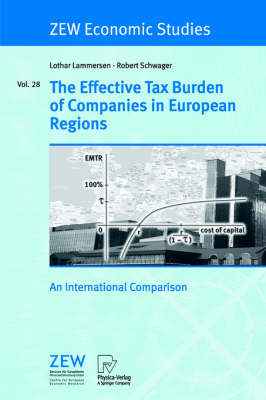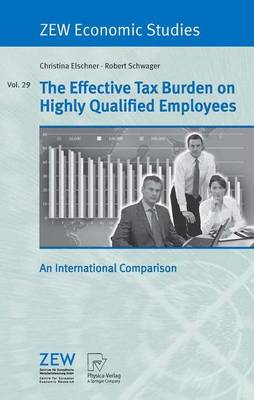ZEW Economic Studies
2 primary works
Book 28
The Effective Tax Burden of Companies in European Regions
by Lothar Lammersen and Robert Schwager
We are grateful to Christoph Koellreuter and Martin Eichler from BAK Basel for or- ganising and promoting research on taxation inside the IBC. Our colleagues Christina Elschner and Gerd Gutekunst, ZEW, gave many detailed and very help- ful comments. Finally, we owe thanks to Ulrike Nicolaus and Monika Jackmann who provided able help in preparing the final draft of this report. Of course, all remaining errors are our sole responsibility.
Book 29
The Effective Tax Burden on Highly Qualified Employees
by Christina Elschner and Robert Schwager
Taxes on the highly skilled are an important cost factor for companies competing internationally for talent. This book provides an international comparison of the effective level of taxes and social security charges imposed on highly qualified employees. Based on a newly developed inter-temporal simulation model, the attractiveness of 7 EU member states, 12 Swiss cantons, and the United States is assessed. Several compensation packages including old-age provision, fringe benefits, and long-term incentives as well as various income levels and family situations are considered in the analysis. The book also contains a comprehensive survey of social security and tax systems in the countries studied.

